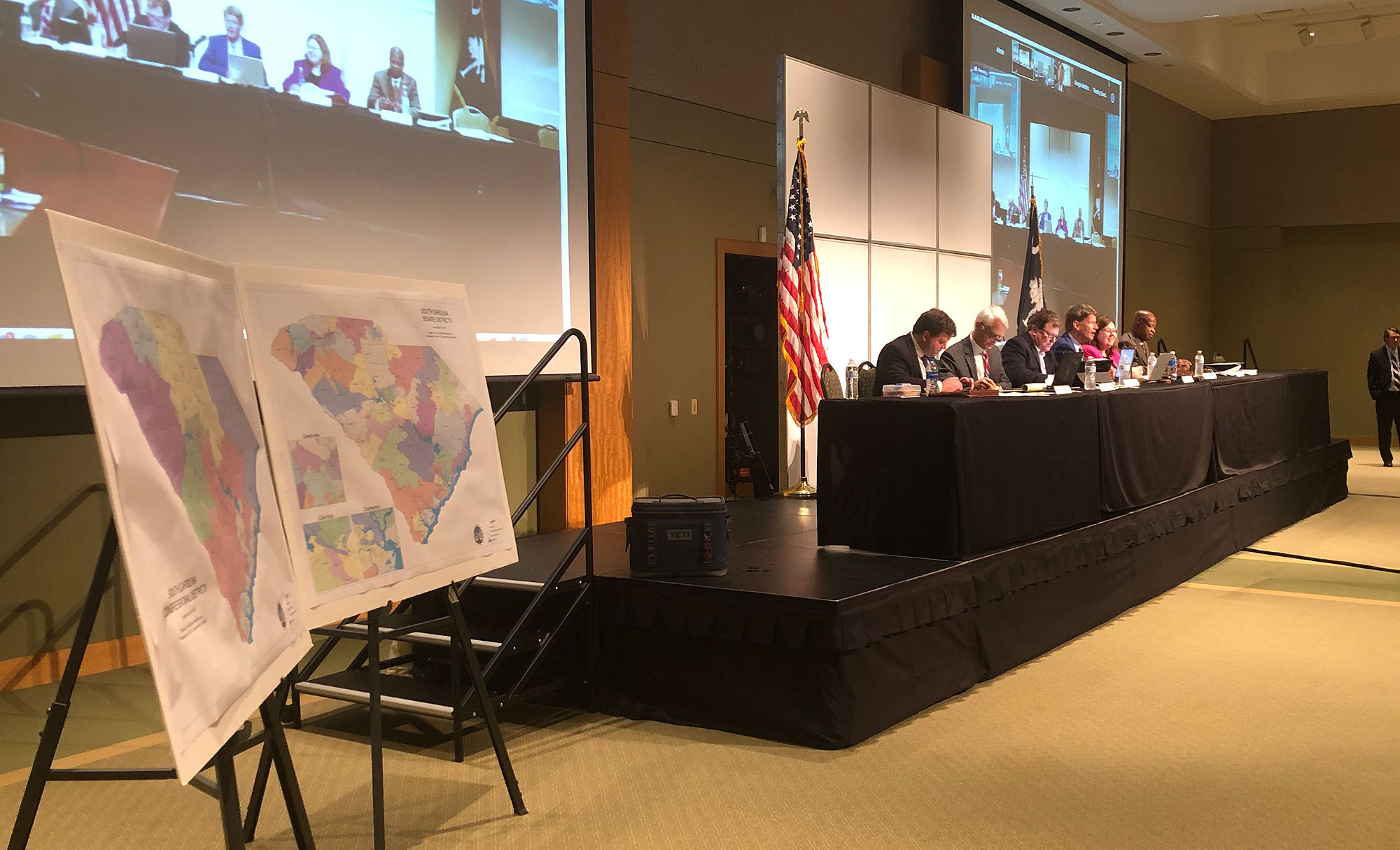
By Holley Ulbrich, special to Statehouse Report | State legislators are holding meetings around the state to get citizens’ thoughts about how to redistrict as they finally get the Census figures from 2020. It seems like a good time to revisit the botched mess the General Assembly made of home rule in the 1970s in dealing with provisions of the 1895 Constitution under which all county business was run out of Columbia by legislative delegations.

In case you aren’t familiar with the term, “home rule” means that a state grants a certain degree of autonomy to local governments in how they raise and spend their money, organize their government, run their elections, staff their boards and commissions, and in general manage local affairs. Maybe even what they name their buildings and what statues grace the courthouse square!
Municipalities have some limited home rule, but they are carefully fenced in by stringent annexation laws and still have a lot of legislative dictation about how they raise and spend their money, among other issues. And it’s one size fits all—the same rules apply to Charleston and Six Mile as municipalities, Richland and Lee as counties. School districts, on the other hand, are totally nonuniform. Each is governed by a separate piece of legislation passed by the General Assembly in the distant past which can only be changed by—you guessed it!—new legislation in the General Assembly introduced by the legislative delegation.
Some of us remember the “good” old days when county government consisted of a sheriff, a jail and a county supervisor to take care of the roads, while everything else happened in Columbia. The county budget was passed by the General Assembly as a supply bill for each of the 46 counties. Each bill was introduced by the legislative delegation (the county’s single senator and its one or more representatives) who were the ones who voted to pass it, others just voting present. Members of county boards and commissions were appointed by the legislative delegation.
In the late 1960s, two Supreme Court decisions required that the rule of “one person, one vote” called for redrawing not only congressional districts but also everything down to city wards and school districts based on population. Unlike the federal government, this requirement applied to the state Senate as well as the House.
So gone were the days of one senator per county, which once allowed the state to be governed by the Barnwell ring and other coalitions of rural legislators at the expense of faster-growing urban and suburban counties. Now small counties might have no resident senator, large counties would have several senators, and most counties would find that part of their county shared a senator with another county. The all-powerful single senator would no longer reign supreme over county government (as well as school districts, at least in matters of consolidating or splitting districts or the size and composition of school boards). House districts, likewise, often cross county lines, so that members of both House and Senate may serve on more than one county delegation.
After some experimentation, the present system was put in place. When the dust settled, South Carolina’s 1970s constitutional revision resulted in a modest expansion of home rule for counties, no changes for school districts or municipalities, and the increase in legislation on local matters that applied to all local governments regardless of population, location or rural/urban character. Examples include the Heritage Act and restricting the zoning authority of counties with respect to hog farms and other agricultural uses.
In a state that proudly proclaims its hostility to the federal government and demands respect for states’ rights, there seems to be no comparable respect for the rights of local governments to be treated as independent, competent and deserving of the powers and the flexibility they need to do their work. We can do better.
After the 2020 Census is finally released, state Senate districts along with everything else will again have to be redrawn. As my good friend Lynn Teague reminds us, at the congressional level there is some partisan gerrymandering, but for House and Senate districts at the state level incumbent protection plays a larger role in how the lines are drawn. If we just keep re-electing incumbents, there is little hope for change in home rule. Certainly, making Senate districts more equal in size should improve representation and perhaps lead to more competitive elections, and even hearing concerns about home rule. While redistricting in the 1970s gave citizens what little home rule they have, it is probably true that no amount of redistricting will correct the widespread and continuing preemption of local authority by state legislators and redirect their attention to issues that are statewide rather than local in nature.
The county legislative delegation continues to make important decisions that override what would normally be the purview of the elected county government and the elected school boards. In the case of school districts, changes in the structure (number of districts, composition of boards) were made in Pickens, Fairfield and Sumter counties in recent years that were widely opposed within the county. A primary source of the problem lies in the Senate, where counties with more than one senator representing at least a part of a county split the votes among senators on a proportional basis—the share of each county’s population they represent. In the Pickens case, then S.C. Sen. Larry Martin represented 81 percent and Sen. Thomas Alexander (who is from Oconee County) 19 percent. The Clemson area, which is in Alexander’s district, has no effective voice on local matters in the Senate, specifically the change in the makeup of the school board in removing the at-large seats. Other counties have had similar problems with school district structure and the inability of a substantial number of citizens to influence these decisions. In the case of Dillon County, many of whose citizens have pleaded to have elected rather than appointed school boards, the request has fallen on deaf ears with no resident senator and only one resident representative to listen to their concerns. Sounds like taxation without representation!
County delegations also continue to play a major role in appointments to county boards and commissions, including election commissions. Those appointments are made by delegations that include legislators who reside in other counties. Many small counties have no resident senator at all. County councils must fund the work of these boards and commissions but have no authority over them.
Redistricting will not solve either of these problems. The role of the county delegation is an anachronism dating from the Jim Crow era. In a state that proudly proclaims its hostility to the federal government and demands respect for states’ rights, there seems to be no comparable respect for the rights of local governments to be treated as independent, competent and deserving of the powers and the flexibility they need to do their work. We can do better.
Holley Hewitt Ulbrich is an Alumni Distinguished Professor Emerita of Economics at Clemson University, specializing in state and local public finance. Have a comment? Send to: feedback@statehousereport.com


